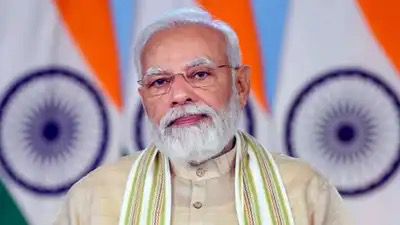Prime Minister Narendra Modi’s recent characterization of India’s military actions—like Operation Sindoor—as the “new normal” has ignited a heated discussion both at home and abroad. Critics, particularly from neighboring nations and some global analysts, contend that this bold stance heightens the risk of unintended escalation and threatens regional stability. On the flip side, supporters argue that it’s a crucial deterrent in an unpredictable security landscape.
Key Highlights
• Strategic Assertiveness: Modi’s assertion that strong military responses, such as Operation Sindoor, are now the “new normal” indicates a conscious shift in India’s strategic approach, especially in light of cross-border terrorism and security challenges.
• Escalation Risks: Experts caution that this strategy, coupled with stalled communication channels and a lack of crisis management tools with Pakistan, raises the chances of miscalculations and unintended escalations—particularly under the nuclear backdrop of South Asia.
• Information Environment: The prevalence of disinformation, AI-generated content, and rapid, unverified claims during crises is seen as damaging the information landscape, making it tougher to separate fact from fiction and limiting opportunities for diplomatic discussions.
• Global and Regional Concerns: Some international observers worry that India’s “new normal” could destabilize the region, blur the lines between militancy and foreign policy, and favor escalation over restraint.
• Defense of Sovereignty: Indian officials and their supporters argue that this new stance is a vital response to ongoing threats and sends a clear message about India’s dedication to protecting its sovereignty and its citizens.
Outlook
While Modi’s “new normal” aims to convey strength and deter aggression, it brings up intricate questions about finding the right balance between security and stability. As India continues to assert its presence on the global stage, the real challenge will be managing escalation risks while keeping diplomatic channels open.
Source: Geo.tv, Pakistan Observer, The Economic Times
